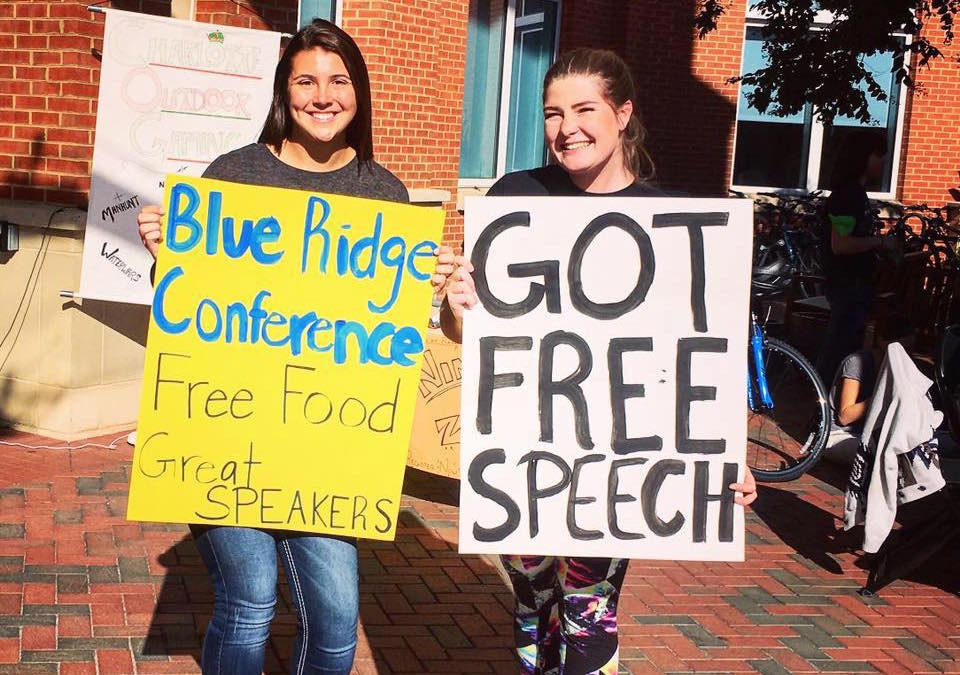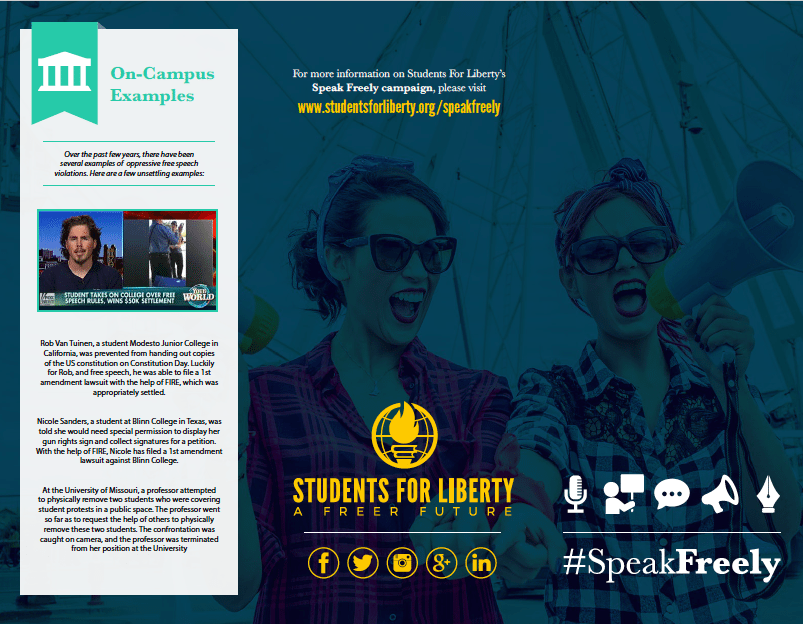Over the past few years, college campuses – which were once hotbeds of free and open discussion – have become home to restrictive speech codes and aggressive tone policing.
In an uncomfortable and ironic chain of events, the generation of students that fought oppressive speech regulations in the 60s has joined the ranks of university administrators. They have turned their backs on the principles of free speech that they once so adamantly defended. Under their direction, college campuses that used to encourage top minds to intensely and vigorously debate all sides of an issue, have eroded into places of enforced conformity and mealy-mouthed politeness.
They claim their goal is to protect all students from offense and discomfort. And, without further investigation, this can seem like a reasonable goal. Indeed,why should even the most repugnant ideas receive the same freedom of expression as more accepted ones?
For defenders of individual freedom, the answer is easy: Diversity of opinion and the ability to voice that opinion fulfills a vital function of civil society and democracy. Rather than giving in to the desire to simply ban any speech we do not like, we should first reflect and realize that not long ago it was once “offensive” to openly campaign for civil rights, equality under the law, and other classical liberal values. Deciding what is and isn’t offensive, or appropriate, or worthwhile, is basically impossible, and certainly too difficult to be left up to school administrators with one-size-fits-all solutions.
Even today, in many places where SFL operates, oppressive regimes violently criminalize those who speak against them – those governments too believe their restrictions serve the public good.
Furthermore, free speech and expression create a marketplace of ideas – sometimes stimulating thoughts far from the content of the original speech. Limiting free speech doesn’t just violate the rights of the person speaking. It violates the rights of others in the audience to listen and – hopefully – to learn and offer counterpoints.
Every time you silence the opinion of someone else, you make yourself a prisoner of your own perspective, denying the possibility of learning something new. Your own right to hear new ideas and struggle with them is as important a consideration in the fight for free speech as the right of someone else to voice their viewpoint. That is the message we at Students For Liberty are trying to bring to college campuses with our “Speak Freely” activism grant which we are pleased to announce today.












